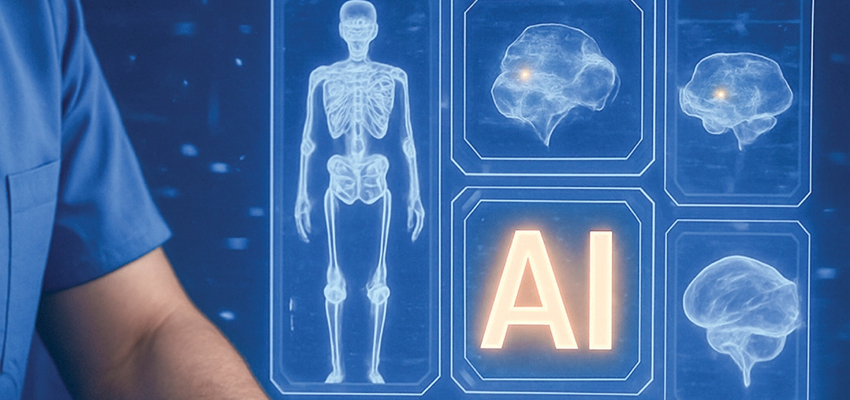AI is entering your personal life, and how!

Artificial Intelligence (AI) is already making waves in the industrial and corporate world, in a spectrum of sectors. There are continued surveys on whether AI would replace human jobs, will the complexion of jobs change for humans, and would AI with a blend of humanisation be the best option for the present and futuristic employees, to keep their jobs and be attractive to potential employers.
Most interestingly, even at the personal level, AI has made strides into our lives, in more ways than one. The most predictable of course are chatbots like ChatGPT, Gemini, Grok, DeepSeek, and there would be some more knocking at your door, soon. People across ages have begun conversing with them, to upgrade and speed up their work for content, images, posters, e-cards and so on.
Recently, I accidentally discovered a health chatbot 'Swast.AI'. Since, I was having muscle pain, I decided to check it out with its AI medical expert. I was stunned at the treatment plan it gave me in minutes. It comprised medications, physical management, lifestyle modifications, and red flags to watch out for. Further, it asked me whether I would like to have a doctor’s prescription. Here is where, there is a payment wall, which was not activated when this article went to print. You can also upload your blood reports, ultrasound sonography, MRI/CT scans, X-rays and other medical imaging. Hold your breath, you can seek medical consultation in 13 Indian languages and is a 24x7 service through online consultations.
Quite proudly, Swast.AI is an Indian AI application, and its mission is to make high-quality medical expertise available to every Indian, regardless of location, language or income.
`Developed by Wozart, Swast.AI is India’s first AI-powered multi-disciplinary super-specialist medical consultant, available to everyone, anywhere, and in multiple languages, for free, writes Fintech Deepak, a source for fintech advice. Stunningly, as I researched through AI chatbots, I found that India has a host of health AI chatbots. These include mfine, Tata Health, Practo, and MediBuddy (formerly DocsApp). Mental health-focused platforms such as Wysa offer anonymous AI-driven emotional support using techniques like Cognitive Behavioural Therapy (CBT), making mental wellness more accessible. Services like iCliniq and WhatsApp-based bots from Apollo Hospitals extend healthcare access by enabling patients to describe their symptoms and receive immediate AI-driven guidance, often in multiple Indian languages.
The question is, will these AI tools be largely accepted by people or will there be some cynicism? Perhaps, with a shortage of doctors beyond urban areas, these might be just a click away for people residing in rural and remote, particularly Swast.AI, which is multi-lingual.